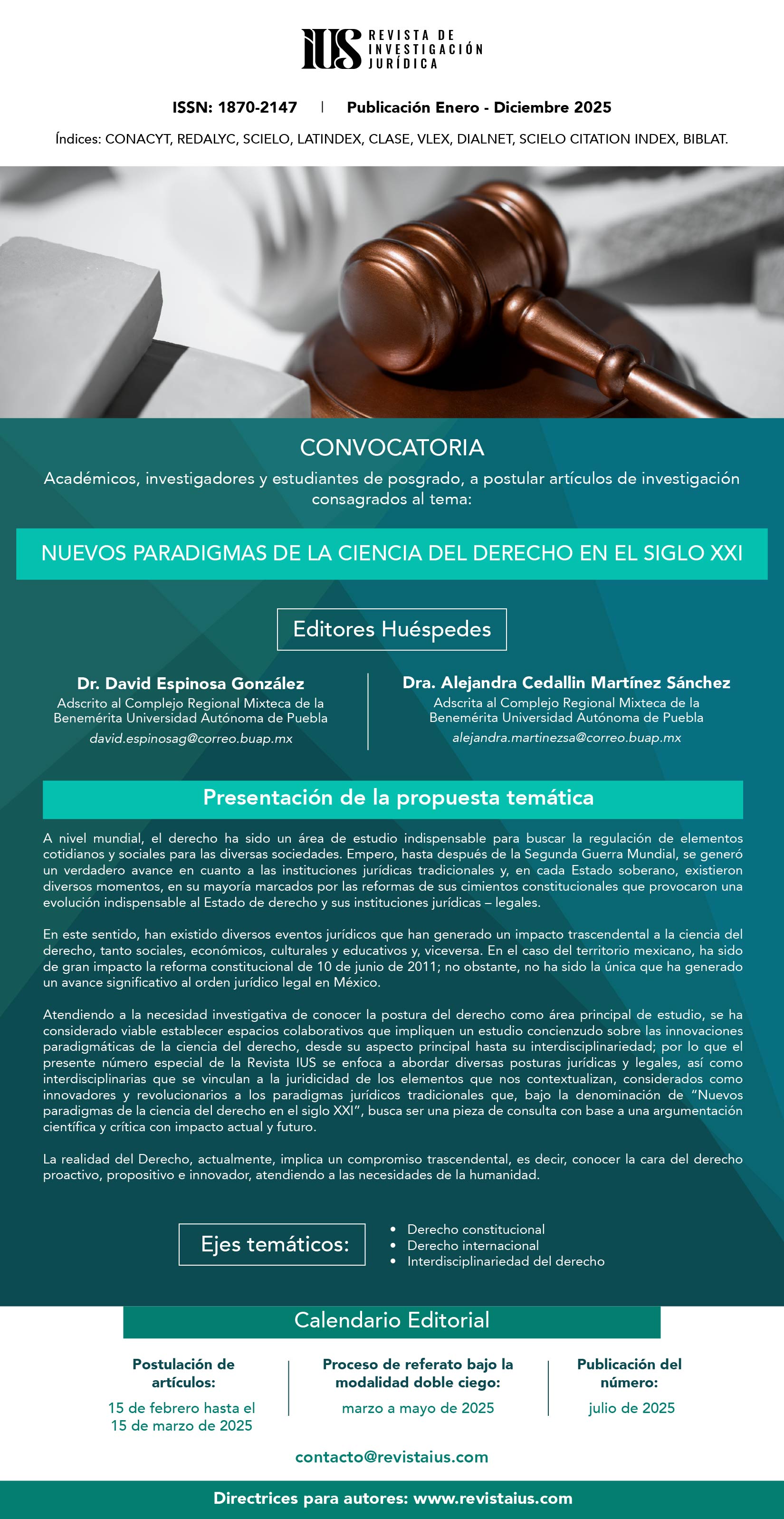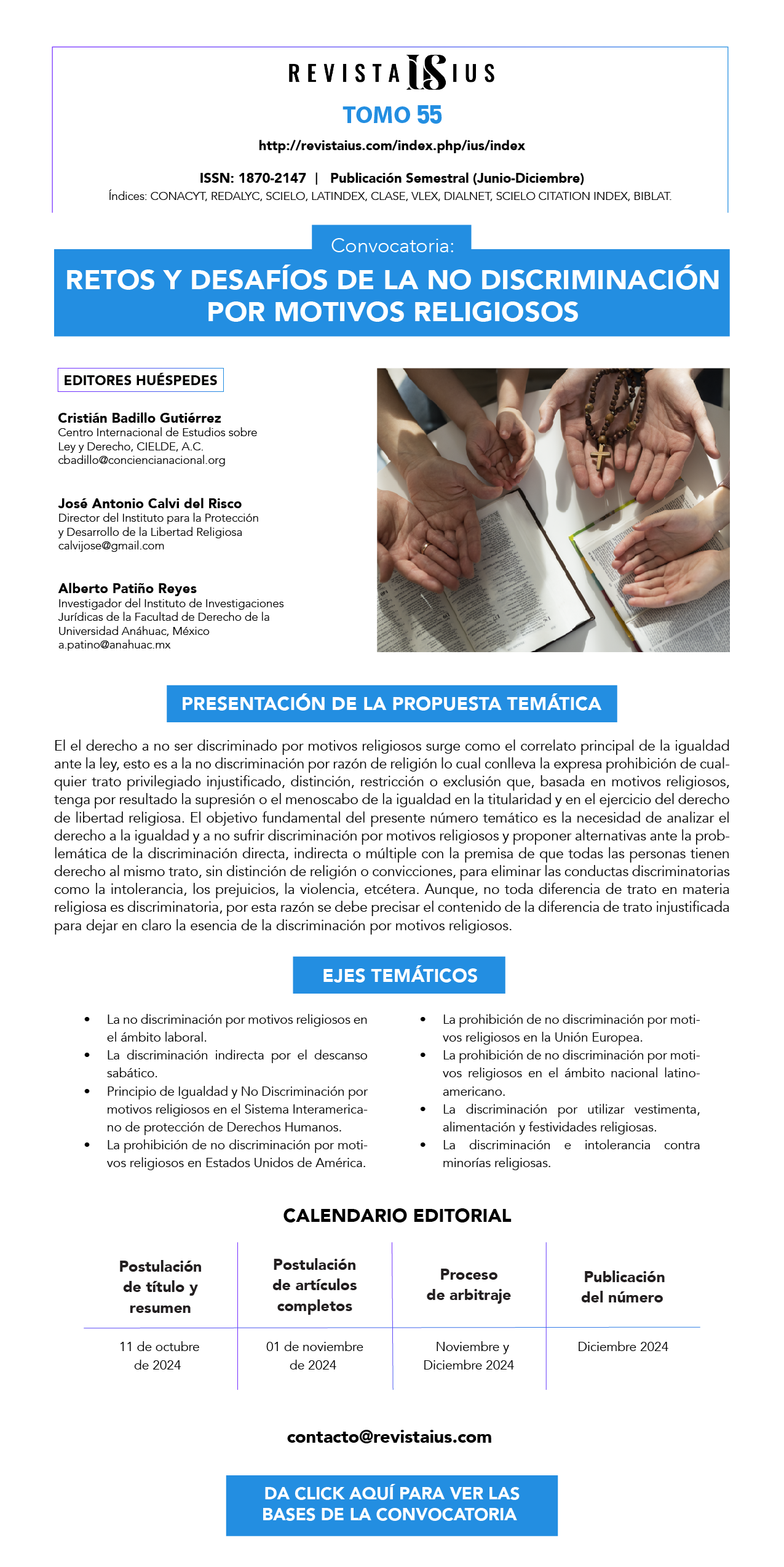Vol. 11 No. 40 (2017): Derechos Humanos y Política Internacional

The contemporary international system inherited the balance of power of the twenty century, which went from the bipolarity to the western hegemonic order under the leadership of the United States. This is an economic, military, political, ideological and even moral leadership. In the legitimization of its major role, the United States and Occident (specially Europe) have defended the ideal of univer salization of human rights, as a regulatory condition to limit the power of States and to broaden horizons of the definition of humanity.
The human rights were enshrined after the signing of the Charter of the United Nations, in October 1945. Since then, the universalization of human rights faces the opposition of different worldviews, impermeable to human thinking of the liberalism or of insensitive authoritarian and even inhuman practices, as it happens with the police or of countries at wars states and episodes of ethnic cleansing. It also confronts serious challenges, even in human rights emitting nations, when under the pretext of the security, human freedoms are being infringed upon.
The multiple crises of the twenty-first century (economic, of security, population, of legitimacy of democracy, of access to resources, of the environment, of political parties, of traditional mass media) jeopardize the crystallization of human rights. In this context, this edition of the ius magazine explores the human rights situation in international politics. It adopts the look of internationalists and political experts and tries to propose other readings on the matter that could be attractive for legal approach readers. In spite of the variety of topics, the central axis of this edition agree on human rights, however noble their postulates may be, are far, as theoretical - normative content, from having already caused a cultural change that makes them more intimate and daily.
Therefore, the reader will find diverse looks and not completely stimulant diagnoses. Nevertheless, the mere exercise of the academic reflection on human rights and contemporary international politics helps to raise the spirits.
The human rights were enshrined after the signing of the Charter of the United Nations, in October 1945. Since then, the universalization of human rights faces the opposition of different worldviews, impermeable to human thinking of the liberalism or of insensitive authoritarian and even inhuman practices, as it happens with the police or of countries at wars states and episodes of ethnic cleansing. It also confronts serious challenges, even in human rights emitting nations, when under the pretext of the security, human freedoms are being infringed upon.
The multiple crises of the twenty-first century (economic, of security, population, of legitimacy of democracy, of access to resources, of the environment, of political parties, of traditional mass media) jeopardize the crystallization of human rights. In this context, this edition of the ius magazine explores the human rights situation in international politics. It adopts the look of internationalists and political experts and tries to propose other readings on the matter that could be attractive for legal approach readers. In spite of the variety of topics, the central axis of this edition agree on human rights, however noble their postulates may be, are far, as theoretical - normative content, from having already caused a cultural change that makes them more intimate and daily.
Therefore, the reader will find diverse looks and not completely stimulant diagnoses. Nevertheless, the mere exercise of the academic reflection on human rights and contemporary international politics helps to raise the spirits.
Published:
2017-06-30




